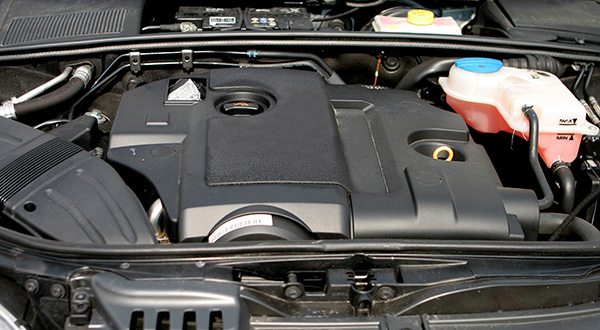
Pulling into your driveway and shutting off the car should be the end of the driving experience, but sometimes unusual sounds continue even after the engine is turned off. A hissing noise is one of the most common post-drive sounds drivers notice. While it can sometimes be normal, in other cases it signals a mechanical or safety concern. Knowing when a hiss is harmless and when it requires service helps you avoid stress and unexpected repairs.
Harmless Causes of Hissing
Not every hiss points to a problem. Some sounds occur because your vehicle is cooling down after a drive. For example, if you’ve been on the highway or in heavy traffic, the engine bay can reach high temperatures. As components like the exhaust system or radiator release heat, metal expands and contracts, creating noises that resemble hissing.
Moisture can also play a role. If you’ve driven through rain or a car wash, water droplets on hot parts of the exhaust or engine can sizzle and create a brief hissing sound. These noises usually disappear quickly and don’t come with performance issues, making them normal parts of cooling and evaporation.
When Hissing Signals a Problem
If the sound persists or is accompanied by other symptoms, the hiss may point to a mechanical issue. One common source is a leaking vacuum line. Modern engines rely on a network of vacuum hoses to regulate air pressure, fuel delivery, and emissions. When a hose cracks or disconnects, the escaping air produces a sharp hissing sound. This type of problem often causes rough idling, stalling, or a check engine light.
Another serious cause is a coolant leak.
If coolant drips onto a hot engine surface, it vaporizes and creates a hissing steam sound. Because coolant is vital to controlling engine temperature, a leak can lead to overheating and serious damage if ignored. Drivers should also watch for sweet smells, steam, or warning lights when this happens.
Hissing From the Brake System
Your brakes can also produce a hiss, particularly if the brake booster or vacuum system develops a leak. A failing booster may hiss when you press the brake pedal, and you might notice the pedal feels harder to push. This problem is more than an annoyance; it directly affects stopping power and should be checked immediately.
Exhaust System Leaks
The exhaust system is another potential culprit. Small holes or cracks in the exhaust manifold or piping can allow gases to escape under pressure, producing a hissing or whistling sound. These leaks can be dangerous because they may allow harmful gases like carbon monoxide to enter the cabin. They also reduce efficiency and can cause the vehicle to fail emissions tests.
Signs You Shouldn’t Ignore
While some hissing is harmless, the following red flags mean you should schedule service as soon as possible:
- The hissing continues long after the car is off.
- You notice steam, smoke, or strong odors alongside the noise.
- The check engine light comes on.
- Your car runs rough, loses power, or stalls.
- The brake pedal feels different when pressed.
These signs usually mean the hissing has a mechanical source that requires repair.
Preventing Hissing Issues
Routine maintenance is the best way to avoid hissing that signals trouble. Vacuum hoses, coolant lines, and exhaust components all wear out over time. Regular inspections enable technicians to identify small cracks, leaks, or weak connections before they develop into major failures. Sticking to fluid checks, cooling system service, and brake inspections keeps your car in top shape and reduces the chance of hearing worrisome sounds after parking.
Professional Diagnostics
Because multiple systems can create hissing noises, identifying the source can be tricky without the right tools. A professional shop uses pressure tests, smoke machines, and thermal imaging to locate vacuum leaks, coolant seepage, or exhaust cracks quickly. Accurate diagnosis prevents wasted time and ensures the repair addresses the actual cause.
Drive With Confidence With Ripley’s Total Car Care in Houston and Spring, TX
A hissing sound after shutting off your car may seem small, but it can be an early warning of bigger issues. Whether it’s cooling components releasing heat or a vacuum line leak affecting performance, quick action saves you time and money. At Ripley’s Total Car Care in Houston and Spring, TX, our skilled technicians can identify the cause and make the necessary repairs, allowing you to drive with confidence.
Schedule your inspection today and keep small noises from becoming costly repairs.